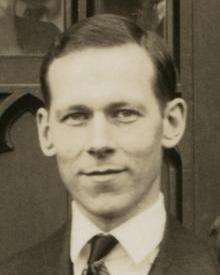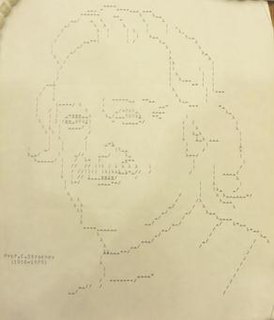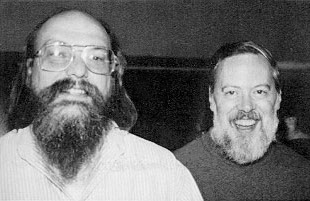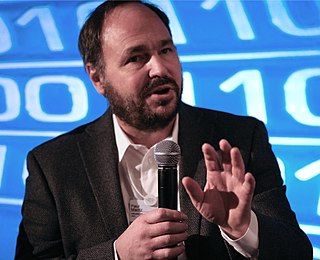Ein Zitat von Sundar Pichai
Seit den Tagen des Personal Computing hat es eine große Entwicklung gegeben. Die Menschen hatten eine Vorstellung von einem Computergerät pro Familie oder vielleicht pro Person. Wir haben uns eindeutig dahingehend entwickelt, dass Computergeräte immer persönlicher werden.
Verwandte Zitate
Wenn Sie auf die Geschichte der Informatik zurückblicken, begann sie mit Großrechnern oder Terminals. Mit der Verbreitung von PCs oder Workstations verlagerte sich die Datenverarbeitung an den Rand, und wir hatten Anwendungen, die die Vorteile des Edge Computing und der CPU- und Verarbeitungsleistung am Rand nutzten. Cloud Computing brachte die Dinge wieder in den Mittelpunkt.
Cloud Computing bedeutet, dass Sie Ihre Daten auf dem Computer eines anderen Computers ausführen. Wenn ich ein wenig in die Zukunft blicke, bin ich fest davon überzeugt, dass Cloud – früher Grid Computing genannt – eine weite Verbreitung finden wird. Es ist viel günstiger als der Kauf einer eigenen Computerinfrastruktur, oder vielleicht haben Sie nicht die Möglichkeit, auf Ihrem eigenen Computer das zu tun, was Sie wollen.
Computer und Computer sind überall um uns herum. Einige Computer sind gut sichtbar, wie zum Beispiel Ihr Laptop. Dies ist jedoch nur ein Teil eines Computer-Eisbergs. Unter der Oberfläche liegt noch viel mehr verborgen. Wir sehen die Computer in Geräten, Autos, Flugzeugen, Kameras, Smartphones, GPS-Navigationsgeräten und Spielen nicht und denken normalerweise auch nicht darüber nach.
Ich möchte meine Überzeugung nachdrücklich betonen, dass die Ära der Computerchemiker, in der Hunderte, wenn nicht Tausende von Chemikern für immer mehr Facetten chemischer Informationen an die Rechenmaschine statt ins Labor gehen werden, bereits angebrochen ist. Es gibt nur ein Hindernis, nämlich dass jemand für die Rechenzeit bezahlen muss.
Intern konzentrieren wir uns auf den Aufbau unserer eigenen Technologie und nutzen dabei die gesamte Dynamik rund um Wearable Computing, Mobile Computing und PC Computing. Aber letzten Endes konzentrierten sich der gesamte Code, den wir geschrieben haben, und alle Erfindungen, die wir geschaffen haben, auf unsere eigene Technologie und unsere eigenen Produkte.
Das gesammelte Wissen über Materialien, Computer, Elektromagnetismus, Produktdesign und alles andere, was wir in den letzten Jahrhunderten gelernt haben, verwandelt ein paar Unzen Rohstoffe im Wert von nur wenigen Cent in ein Gerät mit mehr Rechenleistung, als der gesamte Planet fünfzig besaß Jahre zuvor.
Ich persönlich bin seit langem der Ansicht, dass die Trennung von praktischer und theoretischer Arbeit künstlich und schädlich ist. Ein Großteil der praktischen Arbeit in der Informatik, sowohl im Software- als auch im Hardware-Design, ist fehlerhaft und ungeschickt, weil die Menschen, die sie ausführen, kein klares Verständnis für die grundlegenden Designprinzipien ihrer Arbeit haben. Die meisten abstrakten mathematischen und theoretischen Arbeiten sind steril, weil sie keinen Bezug zum realen Rechnen haben.
Computerkenntnisse sind ein Kontakt mit der Computeraktivität, der tief genug ist, um das rechnerische Äquivalent von Lesen und Schreiben fließend und unterhaltsam zu gestalten. Wie in allen Künsten muss eine Romanze mit dem Material in vollem Gange sein. Wenn wir das lebenslange Erlernen von Kunst und Literatur als Sprungbrett für persönliches und gesellschaftliches Wachstum schätzen, sollten wir dann weniger Anstrengungen unternehmen, um Computer zu einem Teil unseres Lebens zu machen?



































